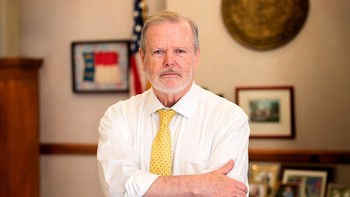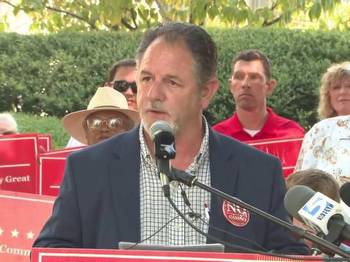Republicans try to resolve casino dispute holding up budget

RALEIGH, N.C. (WNCN) – Republican legislative leaders met Wednesday after it became clear this week that their disagreement over new gambling options is the key issue preventing lawmakers from voting on the state budget.
House Speaker Tim Moore (R-Cleveland) said there aren’t enough members willing to vote in favor of the budget if gaming is included for it to pass, but Senate leader Phil Berger (R-Rockingham) is calling on the House to hold the vote anyway.
“There are a lot of people that have a lot of things in that budget,” said Berger. “I think that the votes would be there if it was put on the floor.”
While the details still aren’t all available to the public, Republicans have said the gaming proposal calls for legalizing four more casinos in the state and allowing video lottery terminals statewide in places like bars and restaurants.
Speaker Moore says it is the only issue standing in the way of votes on the budget.
Moore has confirmed that 42 of the House’s 72 Republicans are in favor of including gaming in the budget. But, with 30 Republicans opposed and few Democrats likely to vote for the Republican-crafted spending plan, Moore doesn’t believe the budget would pass the House if gaming is part of it.
“We still want to get a budget done. And, there’s so much good stuff in the budget. There’s so much money in there for capital infrastructure around the state, money for education,” Moore said. “Lower the temperature. Everybody calm down. And, let’s just try to work through the problem.”
The new fiscal year began July 1 with no new budget in place. State government continues to operate in this scenario at the same spending levels as last year while lawmakers keep trying to reach an agreement.
However, that also means teachers and state workers are not getting raises until the budget is enacted. A plan to expand Medicaid coverage to more than half a million low-income people is also on hold.
“We don’t have government shutdowns like you do at the federal level. Folks are continuing to work. State government is open. Most folks go through and don’t even realize that a formal budget has not been adopted,” said Moore. “The pay raises for teachers and state employees will be retroactive so whether the budget is adopted next week or two weeks later, raises will be retroactive to July 1.”
But, House Democratic leader Robert Reives said that minimizes the impact.
“You’ve got people that need the money, who are waiting on the money. You’ve got counties that can’t make their budgets. You’ve got boards of education that can’t decide what they’re gonna do. You’ve got cities trying to figure out what to do,” said Reives.
While Moore anticipates some Democrats would vote with the Republicans, Rep. Reives said there’s been no effort to work with him on reaching a compromise on the state budget.

































